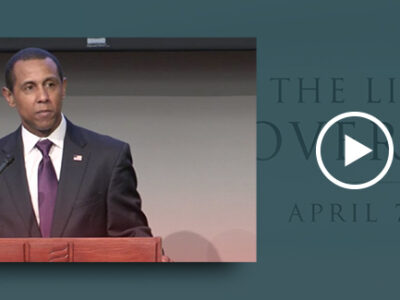Editor’s Note: This article was originally published in the Washington Times on March 21, 2007.
In its recently released Freedom in the World 2007 survey, Freedom House coins a new term for these troubled times: “freedom stagnation.”
On every continent, it seems, freedom of expression, freedom of association, freedom of the press, and academic freedom are under attack.
Reporters Without Borders says a “record number” of journalists and media workers were killed or imprisoned around the world last year. The victims included Anna Politkovskaya, a Russian journalist known for her outspoken views on Russian activities in Chechnya. Another was Hrant Dink, a well-known Turkish journalist gunned down not long after his arrest for “insulting Turkish identity.”
The Committee to Protect Journalists places the total journalists killed in 2006 at 55. Reporters Without Borders and the Brussels-based International News Safety Institute place the number much higher. In a March 6 report, the latter organization claimed that in the last 10 years alone more than 1,000 journalists have been killed while doing their jobs. When you realize hundreds of others have been the victims of kidnappings, jailings, threats and harassment, a disturbing picture emerges.
While the world’s thugs and oppressors have no qualms about using strong-arm and even lethal tactics, there are other ways to silence people, such as taking away their livelihood.
In Venezuela, for example, President Hugo Chavez has announced plans to strip Radio Caracas Television (RCTV) of its broadcast license. The crackdown on RCTV, one of the country’s oldest and most widely viewed television stations, prompted a strong rebuke from the Organization of American States (OAS), which plans to ask the Inter-American Court of Human Rights to intervene in the matter.
If history tells us anything at all, however, it is that Mr. Chavez will ignore any court ruling, and do so in the most undignified manner. Or he will tell the court to mind its own damn business, as he did the Organization of American States’ Secretary General Jose Miguel Insulza, after Mr. Insulza urged Mr. Chavez to reconsider.
The same tactic with a different twist also can be seen in Turkey. Last year, Turkish political science professor and think tank president Atilla Yayla, whom I have known for more than 15 years, presented a lecture in which he made the case that Kemalism—the official nationalist and secular ideology created by followers of the Turkish Republic’s founder, Kemal Ataturk—was a step backward rather than forward. Immediately after the speech, the Turkish media branded Mr. Yayla a traitor and he was suspended from his teaching position at Gazi University in Ankara.
An international group of academics took up his cause and petitioned the university to reinstate him. They argued that a university should champion freedom of expression, not stifle it. Three months after his suspension, Mr. Yayla was reinstated and started lecturing again. But the story doesn’t end there. Recently, a public prosecutor brought charges against Mr. Yayla, asking for his imprisonment for up to three years for “publicly insulting” Ataturk.
The examples go on. In China, a Web site covering government corruption was shut down in early January. Authorities in Sichuan Province continue to enforce an Internet ban on Tibetan poet “Woeser.” The wife of Yang Maodong, one of at least 50 jailed “cyber-dissidents” in the country, claims her husband is being tortured.
While the United States and Great Britain are beacons of freedom compared to most of the world, we are not without problems. Many journalists continue to be denied access to information that should be available to them—and the public—under Freedom of Information laws. The British government recently proposed giving government officials wider authority to turn down information requests, which the British Newspaper Society says will “neuter the Act completely.”
The right to speak and publish freely without fear of bodily harm or economic sanction are among the cornerstones of free societies. Without these freedoms, all others are in jeopardy. We all need to defend freedom of expression, or next year’s Freedom House survey will talk about “moving in reverse” rather than “stagnation.”




